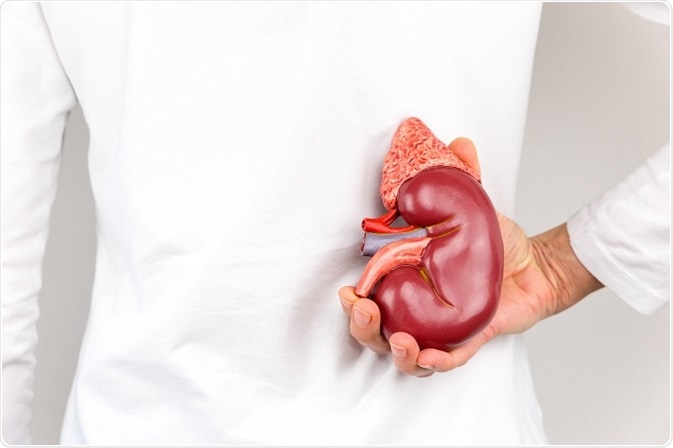Kidneys are essential for our survival. They perform important functions that keep us healthy and alive. They filter waste and excess fluid from the blood to balance its composition; maintain stable levels of electrolytes such as sodium, calcium, and phosphate; control blood pressure; and produce hormones that are needed to keep the bones and blood healthy.

©Ben Schonewille / Shutterstock.com
Each kidney contains approximately one million tiny tubes called nephrons that filter waste and extra fluid from the blood, which is later excreted from the body in the form of urine. Usually, people are born with two kidneys, but sometimes a person may only have one, which is referred to as a solitary kidney.
The three main reasons a person may have a single kidney include the following:
- Birth defect - A condition called renal agenesis means a person is born with only one kidney. In another condition, renal dysplasia, a person is born with two kidneys, but only one functions.
- Surgical removal (nephrectomy) - Some people may have had a kidney removed as a result of cancer or another disease
- Kidney donation - An increasing number of people are choosing to donate a kidney to a family member or friend.
Many people can lead a normal and full life with one kidney, although some problems may arise in the long-term that require specific monitoring and treatment. Some of the problems that may occur include:
Hypertension - Since the kidneys are involved in maintaining a healthy blood pressure, many people with solitary kidney are at a slightly increased risk of hypertension.
Proteinuria - An excess of protein in the urine can be an indicator of kidney damage and people with solitary kidney often have above average levels of protein in their blood.
Lowered glomerular filtration rate (GFR) - The GFR indicates how well the kidney is filtering fluid and waste from the blood and people with solitary kidney often have a reduced GFR.
Monitoring
People with one kidney should have their kidney function checked once a year, which is performed using simple blood and urine tests and a blood pressure check.
Blood pressure
A normal blood pressure is around 120/180 and a blood pressure above 140/90 is considered high. People with one kidney should maintain their blood pressure below 130/80. They should take any medications that have been prescribed for this purpose because high blood pressure can damage the kidneys.
Dipstick test
A dipstick test involves using a strip of paper dipped into a urine sample to check for the presence of proteins, which are usually contained within the blood. The presence of protein in the urine shows that the kidneys are leaking protein that should stay in the blood. A more sensitive test for this is the protein-to-creatinine ratio, which also indicates leaking proteins if the ratio is high.
GFR test
A person’s GFR is calculated based on their blood creatinine level, together with their age, weight, body size, race, and gender. A GFR that is consistently below 60 or above 60 with evidence of kidney damage, indicates chronic kidney disease that will require treatment.
Diet
Majority of people with a solitary kidney do not need to stick to a particular diet, although they should maintain a healthy, low-fat diet that includes grains, vegetables, and fruits. If they already have high blood pressure, salt intake should be minimized. Alcohol and caffeine should be limited and high-protein foods should be avoided. Since the kidneys remove the waste material that proteins are broken down into, eating a protein rich diet can give the kidneys extra work to do. However, eating a moderate amount of protein is still necessary to ensure adequate nutrition.
Avoiding Injury
For people having only one kidney or one functioning kidney, loss of that kidney may necessitate dialysis or a kidney transplant. It is therefore important that doctors are aware of the solitary kidney so as to ensure no damage results from the use of medications or medical procedures. People who engage in certain forms of sport may also be at risk of injury to their kidney and health care providers, parents, and patients should carefully weigh the risks and benefits of engaging in such activities.
Further Reading
Last Updated: Dec 30, 2022